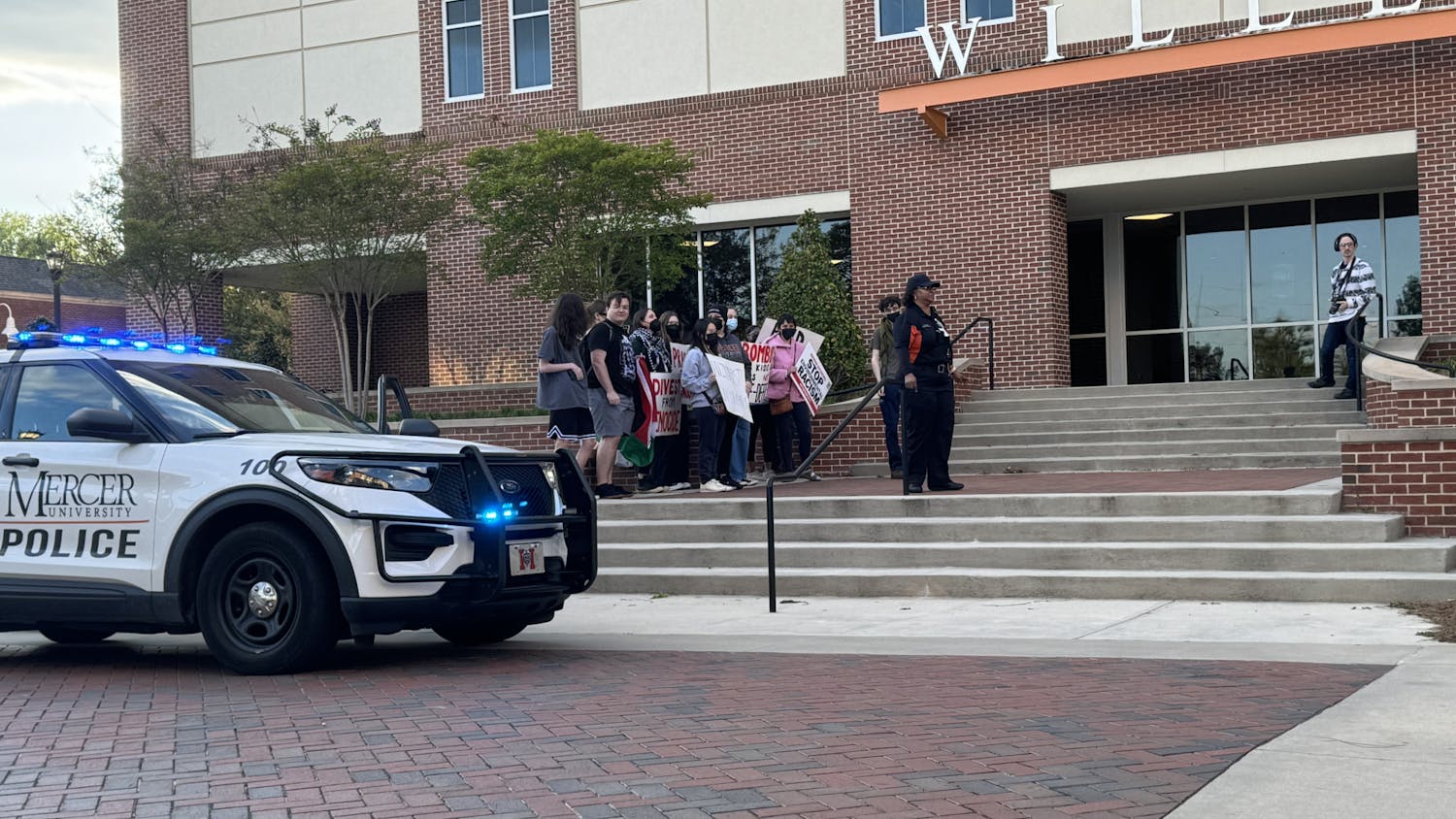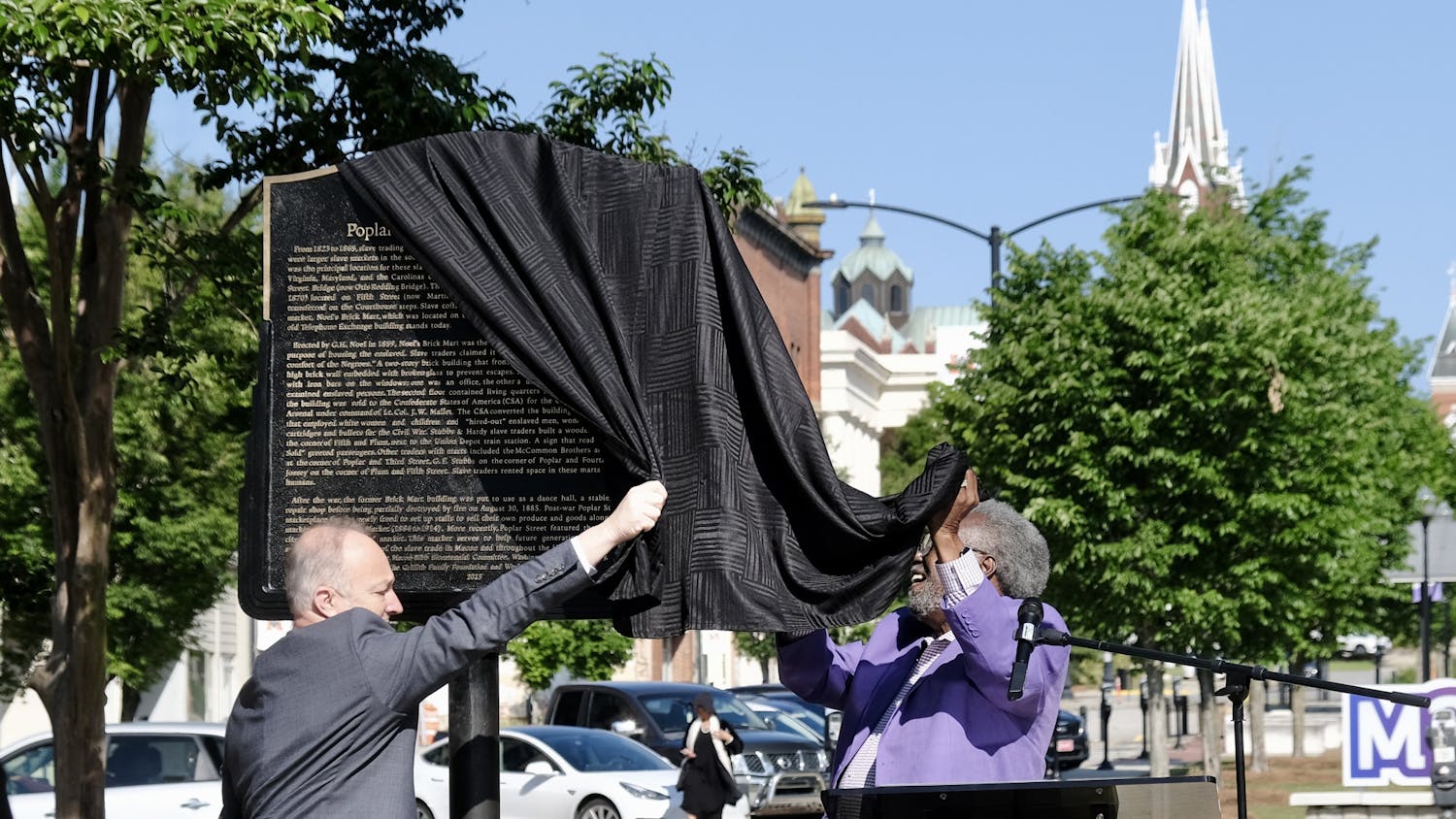The blonde-haired high-schooler balanced the chemical equations in front of her. Her grandfather, a chemist, sat next to her doing the same. They raced each other--atom for atom--and she wasn’t about to lose.
The future Mercer Bear didn’t realize how far those races would take her until a few weeks ago.
Sophomore and Stamps Scholar Kaydren Orcutt became the third Mercer student in three years to win the Barry M. Goldwater Scholarship—one of the most competitive and prestigious scholarships given to highly qualified scientists, mathematicians and engineers who intend to work in research.
“It’s gonna open a lot of doors,” Orcutt said.
She came to Mercer unsure of whether she’d go pre-med or study Chemistry in hopes of obtaining a PhD. She took Advanced General Chemistry with Professor Garland Crawford and did well. Crawford saw her potential and introduced Orcutt to Professor Kathryn Kloepper.
They hit it off, and she joined Kloepper and her undergraduate research group.
Their research was utilizing analytical chemistry to identify the best way to clean up oil spills.
In the past, synthetic surfactants--lab produced compounds that allow the water and oil to mix and disperse--were used to help clean the spills. However, these surfactants are harmful to the environment.
Seeking a less harmful solution, scientists went to work.
Biosurfactants--natural compounds--act in the same manner. They are better for the environment but have not been very effective. Kloepper and her group wanted to identify an effective biosurfactant.
Orcutt spent several weeks in the summer working in the lab, contributing to the research. Kloepper took notice.
“Kaydren is excellent in the laboratory, but what really distinguishes her is her initiative and drive,” said Kloepper. “Kaydren…was very pro-active in learning about the project and analytical chemistry as a discipline.”
Orcutt submitted all the materials to Goldwater advisor and Mercer professor Adam Kiefer at the end of January.
The waiting, Orcutt recalled, wasn’t too bad. It was out of her hands but the thought was always on the back of her mind.
She was studying for a physics test when she got the news. Kloepper called her and asked her to come to her office. She wouldn’t tell her why.
She pulled up the award winner names and starting scrolling. Kloepper stopped. There it was: Orcutt.
“I was super excited,” Orcutt said. “There had been a lot of tension in the past couple days. They said they would get it back by [March 31] at the latest. We were in crunch time.”
The scholarship was a late birthday gift for Orcutt—the results came out two days after. Her family was ecstatic, Orcutt said.
Something was missing. Orcutt’s grandfather, the same one who’d race her, passed away earlier this year before she finished the application.
“It was one of those things I really shared with my Grandfather and I think they were a little upset that he wasn’t there to hear the news,” Orcutt said. “The irony, of course, is that my grandfather worked for a company that drilled for oil.”
The award means big things for both the University and Orcutt.
“Her success represents not only her brilliance as a scientist but also the dedicated mentoring and teaching in Mercer’s science programs,” said David Davis, Director of Fellowships and Scholarships.
Orcutt is preparing to work with the National Institute of Standards and Technology (NIST) and National Oceanic and Atmospheric Administration (NOAA). She’ll also be applying to top Research Experience for Undergraduates (REU) programs.
But, she’ll be relaxing this summer. She’ll be in Spain for a month learning about the country’s culture, and improving her Spanish skills enough to help with the environmental problems in South America.
“I'll get to explore all the beautiful architecture,”Orcutt said. “My goal is definitely to be fluent enough to be mistaken for a native Spaniard.”
Atom for Atom: Orcutt Becomes Third Mercer Student in Three Years to win Goldwater





